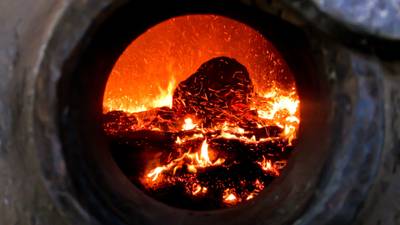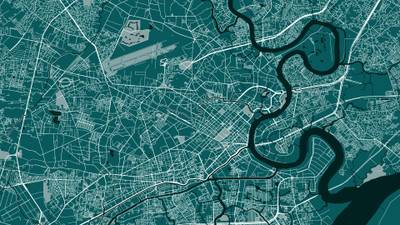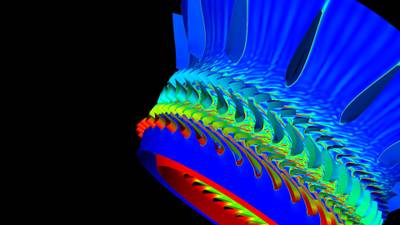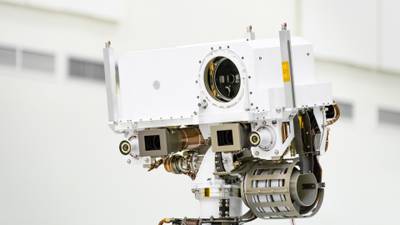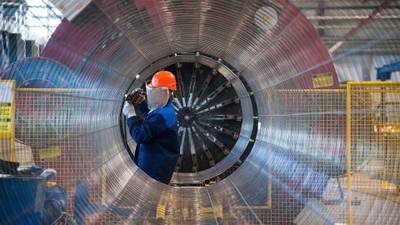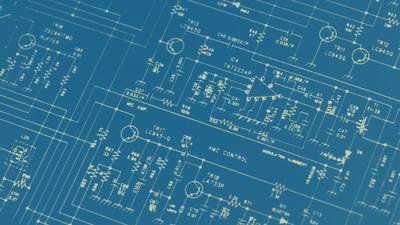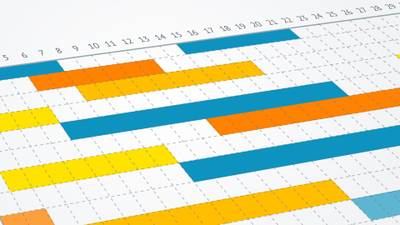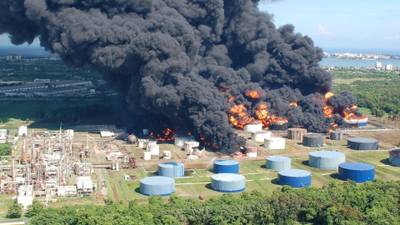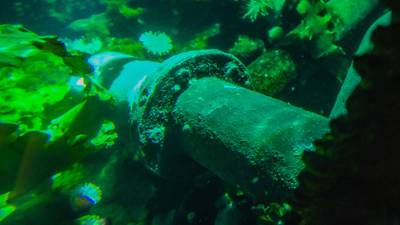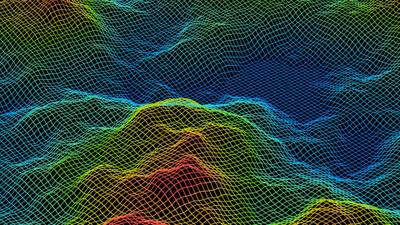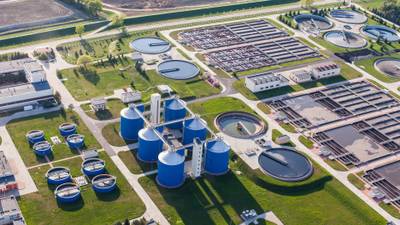Join our online process design course for expert process engineering training.
Learn the skills you need for a career in process design, process engineering, chemical engineering, safety engineering, and materials selection and management in various industrial settings.
In this Masters-level online short course, you’ll develop your knowledge and skills in designing inherently safe process plants.
You’ll learn about:
- developing Process and Instrumentation Diagrams (P&IDs) for process plants
- creating effective layouts and safety-critical systems
- evaluating and selecting materials from a process safety standpoint
- analysing factors like corrosion and temperature effects on materials
- addressing oil and gas pipeline design issues, material failures, and probabilistic methods.
Who can join this online process design course?
This online course is designed for those seeking engineering roles that are focused on process design, safety engineering, and materials management in industrial environments.

Build credits towards an accredited Masters degree
This online course is part of accredited:
You can use the credits you earn on this short course towards any of these MSc qualifications.
What you’ll study
Int his course, you’ll develop your understanding of process design, safety, and materials in engineering contexts.
You’ll cover several of the following topics:
- Inherently safe process plant design
- Hydrocarbon release and prevention
- Relief and blowdown systems
- Plant layout
- Material properties and selection
- Probabilistic methods in Engineering
- Failure mechanisms, including corrosion, fracture, and fatigue
By the end of this course, you’ll be able to...
-
Design inherently safe process plants, incorporating effective layout and safety-critical systems.
-
Design safety layouts for onshore and offshore plants.
-
Develop Process and Instrumentation Diagrams (P&IDs) for process plants.
-
Develop P&IDs incorporating Inherent Safety Design (ISD) and Layer of Protection Analysis (LOPA).
-
Understand and apply principles of material selection, particularly in the context of process safety.
-
Analyse corrosion mechanisms and their impact on process plant materials.
-
Evaluate the effects of temperature deviations on material properties in industrial settings.
-
Address issues related to oil and gas pipeline design, material failures, and probabilistic methods in engineering.
Choose the University of Aberdeen for online process engineering courses

Earn as you learn
We fit around full-time work, so you can earn qualifications while you keep earning a salary.

You’re in expert hands
We’ve been training world-class engineers for over 100 years and delivering online learning for decades.

20% alumni discount
University of Aberdeen alumni get 20% off this online course.
How you’ll study
Online learning
This distance-learning process design course is delivered flexibly, 100% online.
You can learn with us anywhere in the world, no student visa required, and manage your hours to suit you.
Your teaching
This course is taught at Masters level.
Teaching is delivered through MyAberdeen, our online Virtual Learning Environment (VLE). It holds all the materials, tools and support you’ll need in your studies. Take a look around MyAberdeen.
You can access your learning materials on computer, smartphone and laptop, 24 hours a day. You’ll find a range of resources available, including:
- video lectures
- online tutorials
- reading materials
- the online resources of our award-winning Sir Duncan Rice Library.
Your tutors
This course is delivered by our School of Engineering.
You’ll learn from a team of internationally experienced engineers, academics and industry professionals.
Industry input
This course’s content is also developed and reviewed by an Industry Advisory Board. This group of experienced professionals ensures your learning is in line with the latest industry trends, technology, skills needs, and career opportunities.
You’ll be assessed online for this course. Assessment will take place throughout the term, via:
- two assignments (each worth 10% of your final course grade), and
- a final online exam (worth 80% of your final course grade).
The course totals approximately 150 hours of study and assessment time. That’s around 10 – 15 hours per week.
This is an indicative guide to the time required for a typical student at this level to achieve the learning outcomes. This includes time for independent study, as well as teaching and assessments.
You can largely set your own study hours each week to cover the materials. MyAberdeen is available 24/7, so you can log in and study when it suits you.
Activities with deadlines
There will be some activities scheduled at fixed times, such as assessments with deadlines, or meetings with your tutor. But otherwise, you can access and work through the course at your convenience.
Our first-class support structure will ensure that you aren’t alone in your studies. You’ll have contact with your coordinator via email, MyAberdeen and Microsoft Teams. You can use social media and discussion boards to chat with your fellow students too.
We provide a wide range of services to support you in your studies and beyond:
- Careers and Employability Service
- Disability support
- IT support
- Library support
- Student Support Service – help with finances, stress, wellbeing and non-academic issues
- Student Learning Service – study support, with advice sessions available via phone or Skype
- Aberdeen University Students’ Association (AUSA) – run by students for students
- Toolkit – clever apps and free training that can make your study life easier
Wherever you are in the world, you’ll feel part of our very special Aberdeen learning community.
Your course coordinator

Dr Henry Tan
Henry is a Senior Lecturer in our School of Engineering. He works in safety science, corrosion, and material failure. Henry collaborates with industry, including BP and DNV, on using multidisciplinary digital twin technology for safety-critical systems in the energy transition.
View Henry’s profileWhere this will take you
Towards a Masters
You’ll earn 15 credits at Masters level (SCQF Level 11) with this course. You can use these credits towards our online:
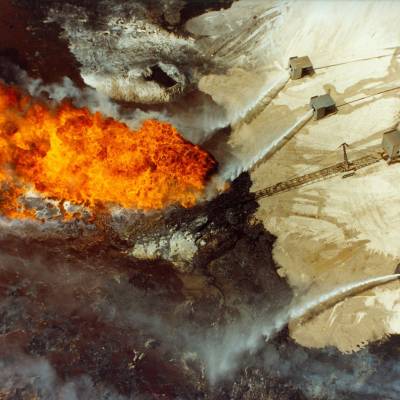
Accredited Masters in Process Safety
Become a qualified process safety engineer, ready to work in any chemical processing sector. Join an IChemE-accredited online degree you can fit around full-time work.
View MSc Process Safety
Accredited Masters in Safety and Reliability Engineering
Become a world-class safety engineer, wherever you’re based, with this accredited online MSc. Train online with internationally experienced safety engineers and learn direct from industry.
View MSc Safety and Reliability Engineering
Masters in Advanced Chemical Engineering
Develop your knowledge and qualifications in chemical engineering, design and practice, with an emphasis on safety and sustainability. Study flexibly online in this degree that fits around full-time work.
View MSc Advanced Chemical EngineeringFurther learning pathways
Following this process design course, you might also consider:
- professional certifications in project management
- specialist short courses or workshops in areas like pipeline design, corrosion management, or probabilistic methods, or
- PhD programmes for research-focused careers in chemical engineering or materials science.
Careers
This process engineering course will prepare you for specific job roles in various sectors, including:
- Process Design Engineer: designing and optimising chemical and process plants
- Safety Engineer: developing and implementing safety protocols in industrial settings
- Materials Engineer: selecting and testing materials for specific industrial applications
- Plant Layout Engineer: designing plant layouts for efficiency and safety
- Inspection and Verification Specialist: ensuring compliance with safety and design standards
- Pipeline Engineer: designing and maintaining oil and gas pipelines
- Project Manager: overseeing engineering projects, particularly in plant design and construction.
Continuing Professional Development (CPD)
Your employer or professional institute may recognise this course for CPD hours. Talk to your employer or institute to find out more.

Free career support
Access our free careers service while you study.
- 1:1 appointments
- CV checks
- Interview prep
- Job opportunities
Entry requirements
Entry requirements
We welcome students from all over the world.
This course has no formal entry requirements. You do not need to provide proof of your qualifications.
But you do need to check the entry guidance above to understand the level of teaching delivered, to decide if this course is right for you.
If you do not have qualifications from the UK, check the equivalent teaching level for your country.
Visa requirements
You do not need a student visa to study online with us.
English language requirements
Teaching is delivered in English.
You do not have to provide proof of your English language skills to join this course. But we want to make sure that you can use English well enough to study successfully.
Recommended level of English
For this course, we recommend the following level of English language proficiency.
These are our Postgraduate Standard requirements, and these are minimum scores.
IELTS Academic, IELTS UKVI Academic, and IELTS Online (not IELTS Indicator or IELTS General Training)
- 6.5 overall
- 5.5 for listening, reading and speaking
- 6.0 for writing
TOEFL iBT and TOEFL iBT Home Edition
- 90 overall
- 17 for listening
- 18 for reading
- 20 for speaking
- 21 for writing
- TOEFL DI code is 0818
Cambridge English: B2 First, C1 Advanced, or C2 Proficiency
- 176 overall
- 162 for listening, reading and speaking
- 169 for writing
LanguageCert Academic/LanguageCert Academic SELT
- 70 overall
- 60 for listening, reading and speaking
- 65 for writing
LanguageCert International ESOL B2 Communicator (Written and Spoken) – Online / In-centre
- Overall High Pass
- 33 for listening, reading and speaking
- 38 for writing
Oxford ELLT Digital – English Language Level Test Online
- 7.0 overall
- 5.0 for listening, reading and speaking
- 6.0 for writing
PTE Academic (online test not accepted)
- 62 overall
- 59 for listening, reading, speaking and writing
Duolingo – tests taken from 1 July 2024 onward
- 120 overall
- 95 for listening, reading and speaking
- 105 for writing
University of Aberdeen English Pre-sessional Programme (PSE)
- Pass
- Valid for one year. Refresher can be offered if out of date
Pre-sessional academic English preparation programmes undertaken at other UK universities
- Pass at an equivalent of 6.5 (C1)
- B2 in all four skills
- Certification must be within one year prior to the start of your course
For full information about language requirements, see our English Language Requirements page.
You will need access to:
A computer (PC, laptop or Mac) operating on either:
- Windows 10 or later
- macOS 10.15 (Catalina) or later.
Most teaching materials are smartphone- and tablet-friendly. But we recommend a proper laptop or desktop for completing assignments comfortably.
Reliable internet access
We recommend:
- a wired connection
- a minimum download speed of 2 Mbps so you can take part fully in live sessions.
Speakers or headphones
- We recommend a headset with built-in microphone and earphones if you’re likely to study in an environment with background noise.
- A webcam is optional, but you may like to use one for some interactive sessions.
Software
We’ll give you access to Office365 applications. This means you can use online versions of Microsoft Word, Excel, and PowerPoint and install these programs on up to five personal devices.
If your course requires specialist software, we’ll provide you with access to this and a licence that lasts throughout your studies.
See our detailed IT requirements for more information.
When you study with us, you can expect a first-class support structure so that you’re never alone in your studies.
But learning online does mean you have to motivate yourself and manage your own time.
Your most important commitment will be time – the time to work through, reflect on and understand your teaching materials.
Before you start a course that involves a high degree of independent study, we recommend looking at the time you will be able to devote to your studies each week:
- Be realistic
- Create a weekly schedule as a guide
If you have any questions about studying online, get in touch with our friendly team. We’re here to help.
Fee payment
Your course fee needs to be paid in full before you start your course.
We accept payment via Visa Debit, Visa Credit and Mastercard.
Ways to save
You may be able to get help funding this course via:
- discounts – if any discounts are available for this course, they’ll appear in the section below
- employer sponsorship – we accept full and partial fee payments from sponsors.
Find out more about funding options.
Student card
All our students are entitled to a University of Aberdeen student card. This gives you access to a range of student discounts around the city and online.
Learning resources
Access to all the books and resources you need are included in your tuition fee. They’ll be made available to you online and you do not have to buy your own copies.
Printing
You may wish to set aside a small budget for printing, depending on how you like to work.
This course has no formal entry requirements. You decide if it’s suitable for you.
The course is delivered at Masters level. At this level of teaching, you’d usually have at least:
- a 2:2 UK honours degree (or equivalent) in Engineering or the Physical Sciences, or
- relevant experience that supports this level of study.
Apply for this course





